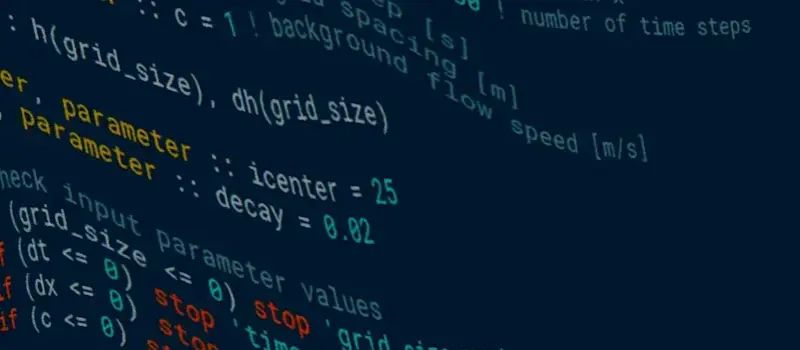Getting REAL with Fortran

Fortran provides a variety of intrinsic representations of real numbers. In this post we look at what these representations are and how we choose a particular representation for our work.

Fortran provides a variety of intrinsic representations of real numbers. In this post we look at what these representations are and how we choose a particular representation for our work.
Since the last update in March, we have updated the following module files:

We are pleased to announce a new scratch storage array that is based on fast NvME based hardware. This will hopefully make I/O related tasks much faster
Since the last update (on 29/11/2018), we have updated the following module files:
On Wednesday 2019-02-20 at 14:00 we will be applying an upgrade to our GitHub Enterprise instance to version 2.16.2, which includes bug fixes and the latest security updates.

At any one time, a typical HPC cluster is usually full. This is not such a bad thing, since it means the substantial investment is working hard for the money, rather than sitting idle. A less ideal situation is having to wait too long to get your research results. However, jobs are constantly starting and finishing, and many new jobs get run shortly after being added to the queue. If your resource requirements are rather niche, or very large, then you will be competing with other researchers for a more scarce resource. In any case, whatever sort of jobs you run, it is important to choose resources optimally, in order to get the best results. Using fewer cores, although increasing the eventual run time, may result in a much shorter queuing time.
We have deployed the latest version of Environment Modules (4.2.1) across the cluster on all frontend and compute nodes.

We have recently procured 120TB of NVMe based SSD storage from E8 Storage for the Apocrita HPC Cluster. The plan is to deploy this to replace our oldest and slowest provision of scratch storage. We have been performing extensive testing on this new storage as we expect it to offer new possibilities and advantages within the cluster.

Ford is a tool which can help document Fortran source code. Here we show how to use Ford and the value of automatic documentation generation.
ITS Research has a Research Software Engineering team. This post introduces the team and how it supports research in Queen Mary University of London. You can also see how to contact the team and why you may want to.